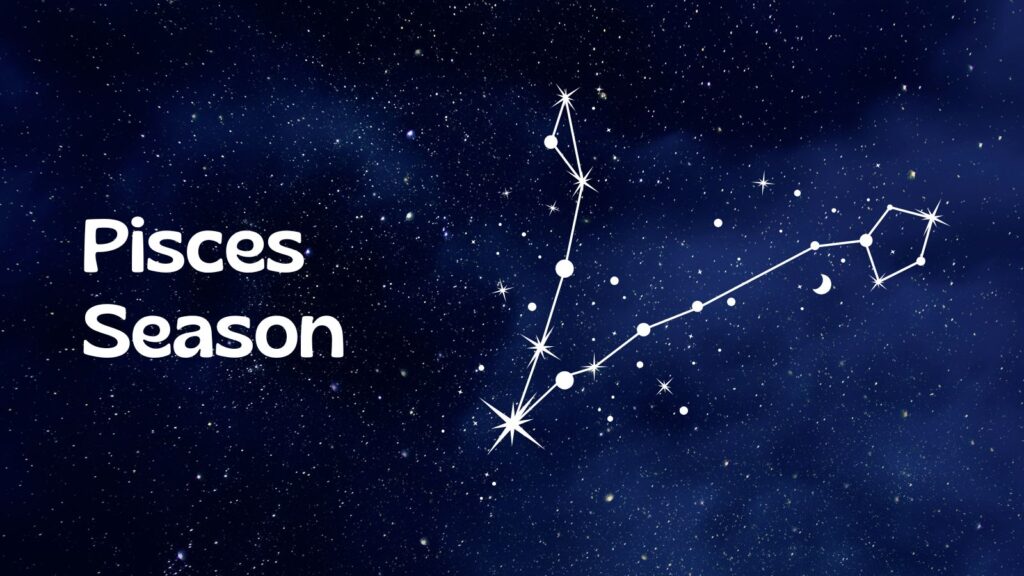I’ve
been curious about how mainstream medicine has dealt with the issue of
fasting for health. I don’t have access to academic databases, so I
did the next best thing: I went to Google Scholar and I typed “benefits
of fasting” with a search restricted to medical papers.
There was a grand total of 35 items, of which not one was a direct
study about fasting. All the links were anecdotal or indirect.
Perhaps a reader will be able to point out examples that I missed, but
for me the result was no surprise. Why would the Big Health Machine
subsidize knowledge that could undermine its authority? It takes money
to do journal-caliber research and who would outlay it in support of a health paradigm that totally invalidates modern “scientific” medicine?
An angel, that’s who. As in: angel investor. Someone who has money but isn’t attached to the status quo. Perhaps a member of the recent innovator/entrepreneurs who are more open to alternative viewpoints. I am calling on the forces of the cosmos
to direct the right person toward this mission. Do I believe such a
study would cause changes in the health care system? No, there are enough people, unwilling to look and entrenched in the right positions, to ensure that the monolith won’t budge. Once
a social institution – justice, education, health care, defense,
whatever – reaches a certain size, its original purpose takes second
billing behind the new #1 purpose: survival. Any unforeseen event or
innovation that would require adaptation and perhaps shrinkage is
handled as a threat.
Nevertheless,
we are living in a time when collective beliefs and consensual
paradigms are more malleable than ever before. Everything is in flux,
everything is in play, even the most cherished beliefs of our culture.
Each one of us affects this work in progress – that’s a belief I like
holding on to. In that spirit, I offer the following brief.
In
compliance with existing legislation, it is hereby stated that nothing
in this piece should be interpreted as advice for the treatment of
illnesses. Each reader should follow the directions of a legitimate
professional.
Conversely,
and under the protection of the First Amendment to the Constitution of
the United States of America, the reader is advised to stay away from
“modern” “scientific” medicine as much as is feasible.
Why Fasting?
In nature, every living
organism, when sick or injured, stops eating. Even a bacterium, when
placed in a hostile environment, will interrupt the nutrition process
to concentrate on self-preservation. Modern humans are the only
species whose members can spend their whole life without fasting a
single day. When sick or injured, we actually put more stuff in the
body, usually not food, but drugs.
I have been using fasting in my life for 40 years. It has been a crucial tool in my survival and healing. I was always frail and subject to illnesses. At the age of 18, my future in this body was very iffy.
The following is based on experiential knowledge. When I use
scientific jargon, I do so only if that statement has been confirmed by
my direct perceptions. One of the great blessings of this practice is
developing your awareness of physiological processes.
In the long term, you are empowered to make more of your own decisions
about your body and rely less on external authorities. There may be
times when you still need help — they just become less frequent.
Please do not believe anything I say here. Check it out for yourself by doing it. I have made most of the mistakes I mention. You may use this information to avoid repeating them and to fast in the best possible conditions, but ultimately, the truth is found through experience.
What Fasting Is and What It Is Not
Fasting has become popular of late, but the term is used very broadly. People are advertising juice fasts, fruit fasts, fasts with supplements, enemas, garlic, wheat grass, pineapple, clay, herbs, teas, etc. Technically, those are not fasts. They are diets: cleansing diets, purifying diets, detoxifying diets, healing diets, and sometimes absurd diets.
The so-called water fast is the only one that should be called a fast. I
am not saying this because I like being supercilious about it. There
are two reasons for maintaining that distinction. One has to do with
the unique benefits of fasting with water only. The other one has to
do with the “theory of health” underlying most of those regimens, which is slightly different from the rationale for fasting.
In the water fast, the total abstinence from food triggers a major physiological shift.
Since
you are still expending energy and rebuilding cells, but you are not
ingesting the materials you need for it, you start breaking down some of your own tissues for those purposes. The technical name for it is autolysis (“breaking oneself down“). The wonderful thing about it is that the organism in its wisdom starts by “eating“ the most useless and worthless tissues available: tumors, cysts, fibromes, lipomes and other growths, toxins and other deposits that are clogging the system, and then interstitial fat. Intra-cellular detoxification is intensified. This is, roughly described, the mechanism for the physical healing in fasting.
When
you “fast” with juices or other accommodations, this physiological
shift only happens partly. It is mitigated by the need to digest the
juices, which are foods. This digestion requires energy and generates
waste products. Not only is the purification less intensive, the
profound physiological rest and “inward-turning“ of water fasting do not happen at all.
The second reason for that distinction is that the logic of fasting is radically
different from the logic of remedies, even natural, holistic or
homeopathic remedies. In fasting, I basically trust nature, my
nature. I surrender to a process that is guided by a huge biological
wisdom that no human medical system can approach in sophistication and
effectiveness. The concept, for instance, of a food that is “good for you”
implies the possibility of doing something to the body to make it
function better. When examined closely, this notion is what drives all
systems of interventionist medicine. Personally, after having observed
the profound changes that occur in a fast and refined my “physiological
third eye” over the years, I find that approach somewhat heavy-handed and naive. There is a little of the mechanical in it.
True, there are affinities and beneficial relationships that can
develop with certain foods or plants. Even in that case, the most one
can say is “this is good for me.”
When
you follow one of the “fasts” that involve taking things that are “good
for you” you are working within two paradigms that are not compatible
with each other and you are not experiencing the dimension of surrender to a higher intelligence at the cellular level. That kind of intensely experiential spirituality is a unique feature of complete water fasts.
On
the other hand, those hybrid “fasts” are much better adapted to urban
living. If you live in a city, hold a job or other demanding
responsibilities, a 100% water fast is not advisable, except for short
periods under well-controlled conditions. In order to detoxify in
depth while maintaining a high level of functionality within city
standards, you should consider one of the many cleansing regimens
currently advertised.
Why to Fast and Why Not to Fast
It is not necessary to be sick in order to
fast. But if one is sick, it is really recommended, especially with the
kind of generic sickness people call “colds” or “flu” which are caused
by a clogging of the system through overeating, a jamming of the detoxification system by drugs, pollution, disharmonious living situations or a combination of the above.
Under such circumstances, and as long as your general state of health
is not severely impaired, you will be pleasantly surprised by the
relief of your symptoms and the general sense of wellness you will
quickly reach.
Better yet is fasting while well. In the framework of personal growth, it
will allow you to experience the many levels of heightened awareness
that become available and take advantage of them for the long term.
Any
spiritual or creative practice will be enhanced and intensified by
fasting. All kinds of known and unknown physical and mental problems
can get handled in a fast, whether that was your intention or not.
If you are working on any type of deep, core emotional healing process,
fasting will tend to loosen the material and make it more accessible.
Fasting for weight loss usually will not work. You will lose weight during the fast, then gradually regain it over
a period of days or weeks after you start eating again. Your current
weight, whether or not you are happy with it, is the end result of a
complex negotiation between multiple forces including your diet,
lifestyle, emotional and spiritual state, closest relationships, and so
on. It is a state of balance, the most positive homeostatic condition
the genius of the organism could achieve under that set of perceived
conditions. In my opinion, body weight can change permanently and
remain at a new, stable level only when that set of conditions or the way you perceive them is altered and a new bargain is struck.
How to Fast and How Not to Fast
As much as possible, fast in the country. Every day, you will get more sensitive, psychically and sensually. If you’re in the city, air pollution, smells, visual ugliness, sound pollution, mental vibrations from neighbors in apartment buildings, any disharmony with people you live with, all those things will bother you more and more every day of a fast. Try to handle as much of it as possible before you start. I like to go backpacking alone for a few days to do a short fast. At least, try to do it in the country and not have any lingering preoccupations about work, relationships, money, etc. Do not fast in the company of someone you have unresolved difficulties with. Do not have anyone take drugs of any kind around you. That would include things like coffee and meat. You will become very sensitive to their presence.
Reduce the amount of food you eat one or two days before the fast. Here is why. That food will get digested and will become dry and hard in your colon. When you break the fast, you will notice it at the beginning of your first bowel movement: hard and dry. If there was a lot in your digestive system when
you started fasting, it could be painful the first time. Contrary to
popular advice, it is not necessary to resort to enemas or colonics to handle that food from before the fast. The intense detoxifying process will apply there as well and make the waste material sterile and harmless. Just eat lightly before the fast.
People are often surprised to find that hunger is not an issue while fasting, as long as
there are no outside stresses. Usually, after the first 24 hours, you
are not hungry at all. You have settled into a different metabolic
regimen.
Drink the finest water you can find. Drink when you’re thirsty. Do not drink “dogmatically” (following someone else’s advice or a book).
Have some moderate physical exercise during the fast. Do not treat yourself like a sick person, unless you are sick. You can do moderate work, physical or
intellectual. Avoid long electronic exposure to TV or computer
screens. Take walks in the country. Play or listen to music, do
creative work or rest. Avoid intense social interactions with people
who are not fasting.
In my experience, if something unexpected happens that requires a great mobilization of energy, I am able to respond adequately, even on a prolonged fast, but then I will probably feel like eating afterwards to repair the effect of the stress. When that has happened in the past, I didn’t resist it: I broke the fast.
The
easiest length to start with is one day and two nights. If you are a
city resident with a Monday-through-Friday job, you would eat lightly
on Friday night, stay home all day Saturday and fast, then break the
fast on Sunday morning and spend most of Sunday at home doing quiet
things. Shorter fasts like skipping dinner or not eating beyond a certain time in the evening are excellent practice and will make you feel great in the morning.
How to break the fast is of paramount importance. Ideally, you should have, for each fasting day, one day available to reenter gradually before going
back to your usual routine (1+1 in the above example). Brutal reentry
can lead to very unpleasant experiences similar to a “bad trip.” Even
after a one-day fast, be very aware of what you eat the first time. Personally it’s always fresh fruit. Whatever you choose –trust your instinct — I think it should be fresh and as alive as possible, meaning no cooked, complicated, refined or preserved food–basically, raw fruit or raw vegetable. Even if you are a regular meat-eater, if you break a fast with meat, you will probably experience it as dead flesh (maybe for the first time ever) and you will not like the experience.
The first food after a fast is an incredible experience. Smell it, chew it slowly. I like to cut an orange in half and spend some time smelling it even before I lick the surface!
Take
time to go back gradually to eating everything — three days for a
three-day fast, etc. is a good rule of thumb. If you left the city in
order to fast, that is also a good plan: have a week in the country
available for a three-day fast, two weeks for a one-week fast, etc.
According
to practitioners who have supervised long fasts for the healing of
serious conditions, one reaches a point when all useless body tissues
have been burned down in the process and, presumably, the illness has
been resolved. At that point, the organism would start breaking down
muscle tissue – an undesirable event – and in its amazing wisdom, it
warns you by making you feel hungry again. I have never supervised
or taken my own fast to that length, but this notion agrees with all my
experiences. I am never hungry when I fast. Every time I break a
fast, it is for practical reasons unrelated to physiology. I always
feel great and wish I didn’t have to deal with the “real” world and
could go on exploring.
For an average North American adult, taking a fast to its natural conclusion could literally take months, weeks for a healthier-than-average person.
What
should be clear from the above is that fasting itself is easy – there
is literally nothing to it. What is less easy is rearranging the
circumstances of our lives to make this doing nothing possible.
Fasting and Entheogenic Substances
Many of the better-known entheogenic substances have a cleansing, detoxifying effect which is not antagonistic to fasting. This is in contrast to toxic drugs like coffee, tea or tobacco that are a really bad idea in combination with fasting. However, using entheogens while on a fast is likely to create a demand for energy that will cause you to get hungry. If that situation occurs, one should eat.
I
recommend a slightly different approach which preserves the benefits of
both practices and provides a wonderful synergy between them: first
fast, then break the fast, then use the entheogen (only in a lawful context, of course). This can be done within the weekend scenario described above. You fast on Saturday, break the fast on Sunday morning, then ingest later on Sunday. On Monday morning, go to work whistling a happy tune.
When we live in a city environment, the entheogenic experience can be overtaken by the process of burning off the
low-level upsets, stresses, frustrations, incomplete interactions,
lingering physiological irritants, stimulants and unneeded foods that
are inherent in that lifestyle. What is left for serious inner work
depends on the individual but is not usually up to the full potential of the entheogen taken in a meditative or ceremonial setting. The experience can be chaotic, superficial and ultimately disappointing.
Fasting before using the entheogen will handle a lot of these obstacles and free you to get to a deeper layer. The two practices work beautifully together, but not simultaneously. If you try it, please let me know how it went.
Generally speaking, I don’t think taking any drug while fasting is a good idea, even healing or entheogenic
ones. In a fast, the organism turns inwardly into a profound, intimate
process that doesn’t require any outside help, even from a healing
plant. An especially bad idea would be cannabis.
It almost certainly would lead to hypoglycemia (“the munchies”), which
would be likely to make you break the fast in an inappropriate and
excessive way.
Resources
The books of Herbert Shelton contain the “purist” approach to fasting that the present text more or less follows. Natural
Hygiene is the traditional name of that school of thought. The
organization that carries on this approach is now called the National
Health Association: http://www.healthscience.org There are many other authors and advisers who talk about fasting, but they often amalgamate it with other practices and lack rigor in their presentation. Part of my motivation for writing this was to distance myself from most of them.
May this information be of service to you. May it hasten the liberation of all sentient beings.
There’s hidden sweetness in the stomach’s emptiness.
We are lutes, no more, no less. If the soundbox
is stuffed full of anything, no music.
If the brain and the belly are burning clean
with fasting, every moment a new song comes out of the fire.
The fog clears and new energy makes you
run up the steps in front of you.
Be emptier and cry like reed instruments cry.
Emptier, write secrets with the reed pen.
When you’re full of food and drink, an ugly metal
statue sits where your spirit should. When you fast,
good habits gather like friends who want to help.
Fasting is Solomon’s ring. Don’t give it
to some illusion and lose your power,
but even if you have, if you’ve lost all will and control,
they come back when you fast, like soldiers appearing
out of the ground, pennants flying above them.
A table descends to your tents,
Jesus’ table.
Expect to see it, when you fast, this table
spread with other food, better than the broth of cabbages.
Rumi, translation Coleman Barks













